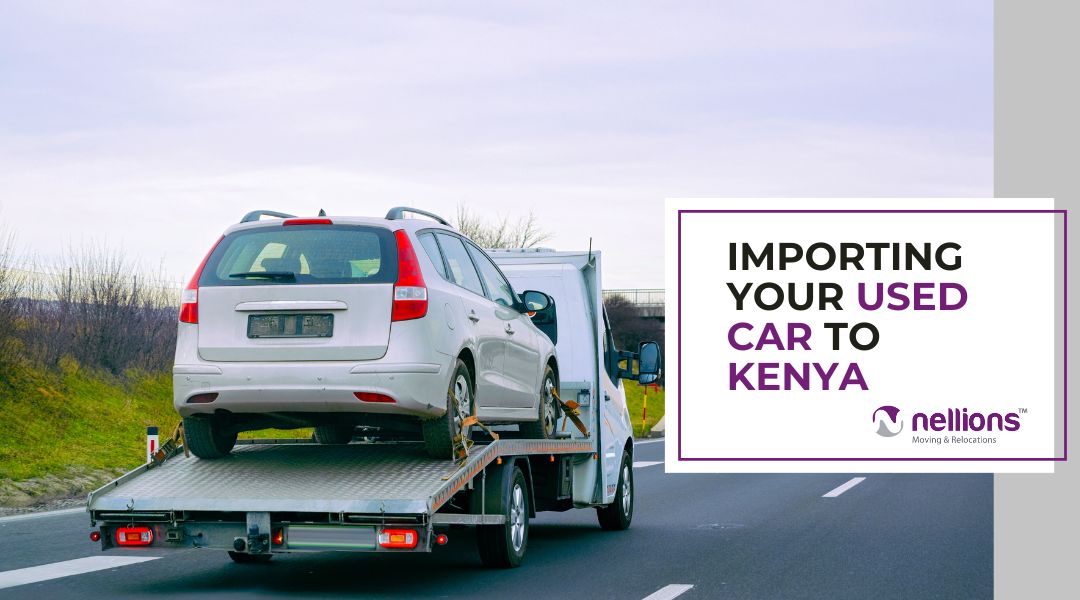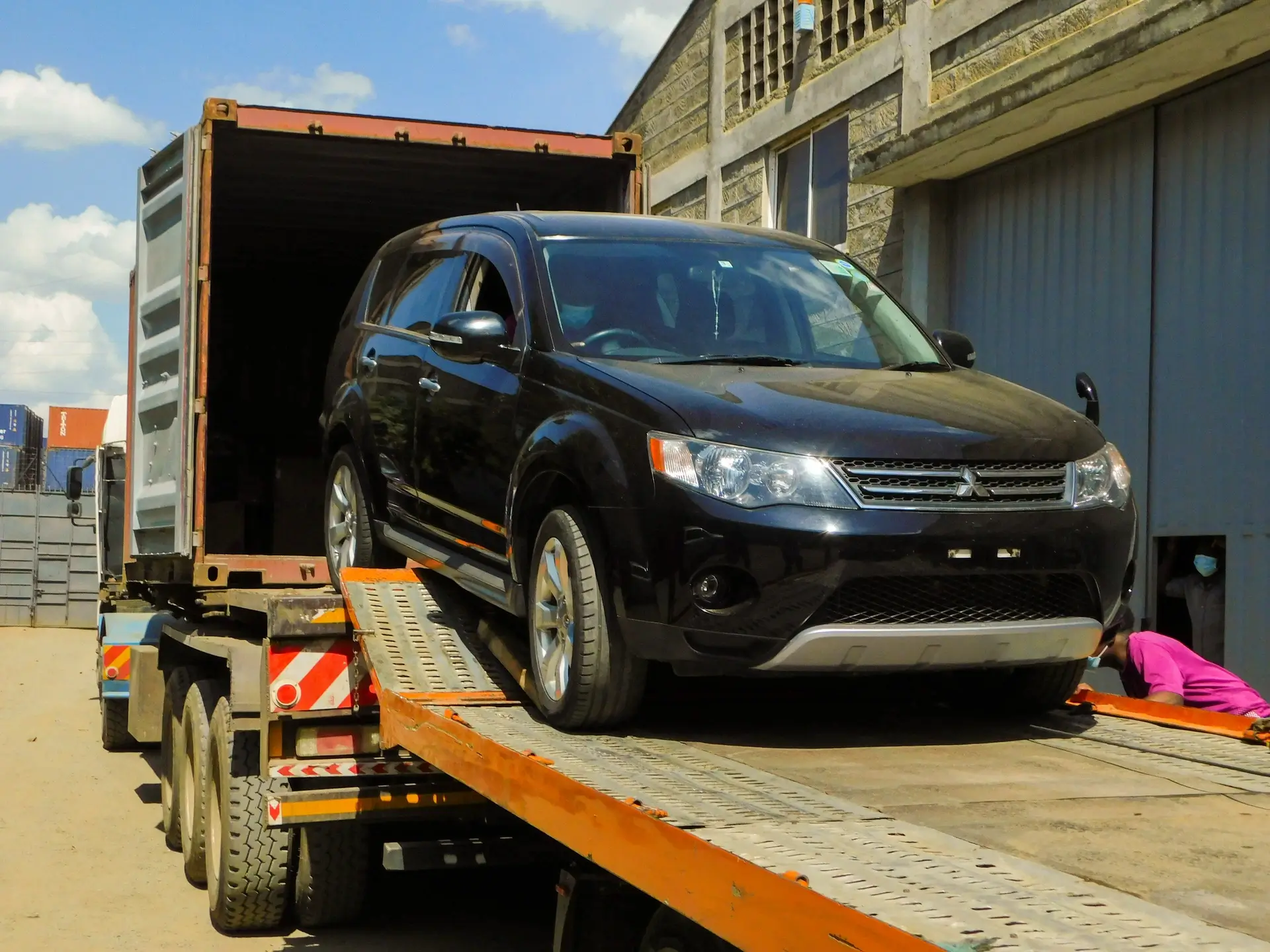For a lot of people, their personal car is more of an extension of their personality, which makes parting with one’s favorite vehicle a heart-wrenching experience when they have to relocate internationally to Kenya.
But it doesn’t have to be so.
There’s no reason you should add a car hunt to your immediate list of priorities when you relocate to Kenya. Not if you already have a perfectly functional motor vehicle that’s packed with a ton of wonderful memories.
With all the change that comes when one relocates — changing your routine, finding a new home, and even making new friends — it helps to be able to hold onto whatever you can that’s familiar and which grounds you.
Fortunately, there are certain incentives for importing your used motor vehicle when you move to Kenya.
For one, because cars are considered part of an individual’s personal belongings, it is entirely possible to import your used motor vehicle duty-free into the country if you’re a returning resident, a diplomat or a 1st arrival (e.g. expatriate arriving for a new work contract).
The Kenya Revenue Authority (KRA) defines a returning resident as any Kenyan individual who is changing residence from a place outside Kenya to a place in Kenya.
Returning residents must, however, fulfil certain conditions if they are to import their used cars into Kenya duty-free.
Here’s all you need to know about relocating to Kenya with your used car:
1. The Motor Vehicle Must Comply With the Kenya Bureau of Standards’ Requirements
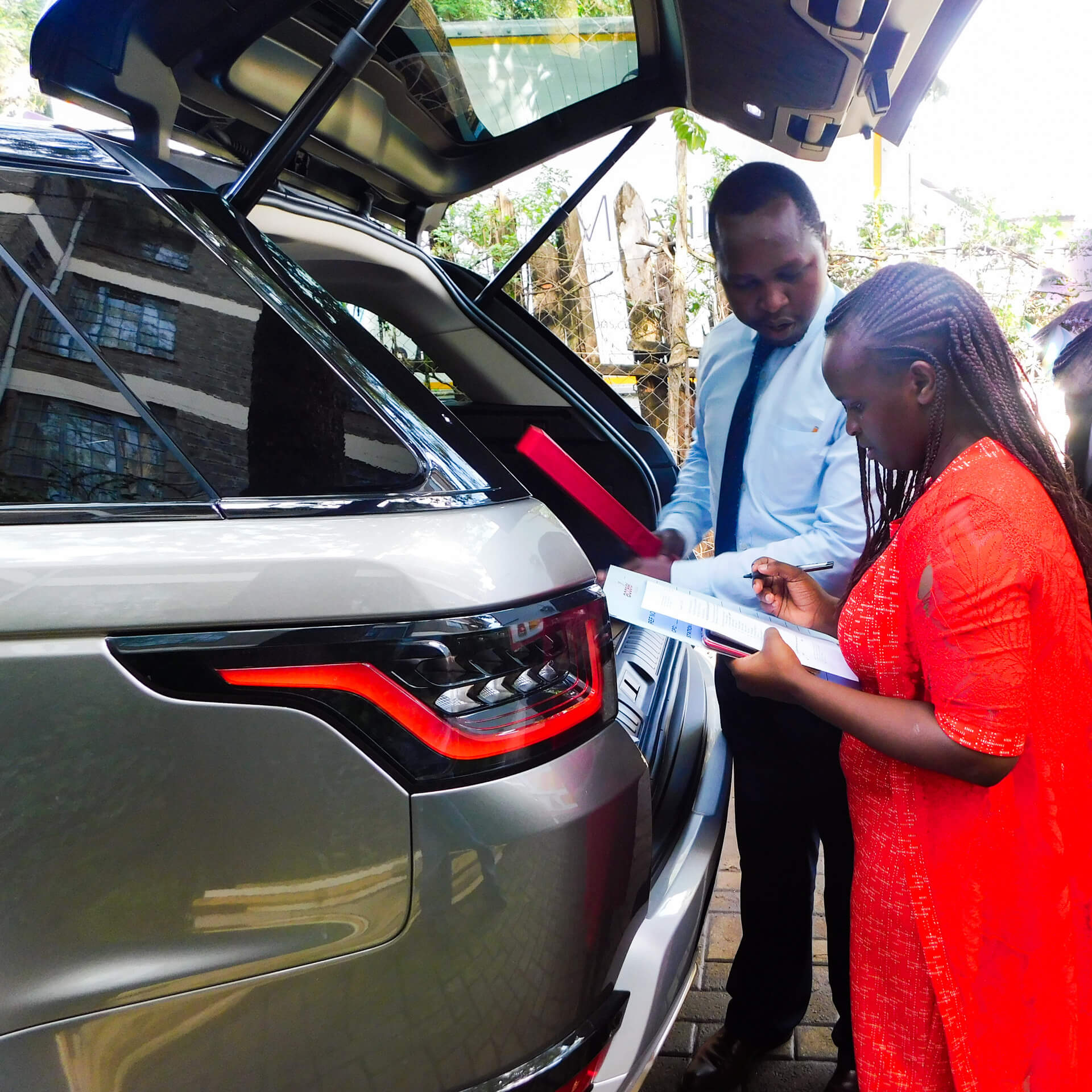
The Kenya Bureau of Standards (KEBS) outlines certain conditions with which vehicles imported into Kenya must comply.
Legal Notice No. 78 of July 15, 2005, which is also known as the Verification of Conformity to Kenya Standards Imports Order, 2005, in addition to KS 1515:2000 Kenya Standard Code of Practice for Inspection of Road Vehicles, guides Kenya’s import regulations on motor vehicles.
These guidelines, which apply whether one’s importing a motor vehicle duty-free or not, state that the imported car must be:
- Less than 8 years old from the year it was first registered
- A right-hand drive (RHD) and NOT a left-hand drive (LHD) unit
- Subject to a roadworthiness inspection by a KEBS-appointed inspection agent in the country of origin- QISJ (Quality Inspection Service Japan)
2. Requirements for Importing your Used Car Duty-Free into Kenya
One must be over 18 years of age before they can qualify to import any car duty-free into Kenya.
Additionally, the duty on imported vehicles is waived only if:
- The individual is returning to Kenya permanently, not just visiting for some time
- One had registered the car in his or her name for at least 365 days, not counting the time the car will spend getting shipped
- The owner has stayed in a foreign country for at least two years
- The owner has not stayed in Kenya for a cumulative period exceeding 90 days during the two years he or she has been away
- The car isn’t a bus or minibus with a seating capacity of more than 13 passengers or a load-carrying capacity of over two tonnes
- The car is shipped out of its origin country within 90 days of its owner’s arrival in Kenya
An important consideration is that Kenya only allows the importation of one duty-free car per returning resident in a lifetime.
3. Duty-Free Exemption Doesn’t Apply to the Railway Development Levy
If you do qualify to bring in your used vehicle duty-free, you’ll be exempted from paying customs duty, value-added tax (VAT), and excise duty.
All non-diplomats must, however, pay the Railway Development Levy (RDL) whether their vehicles qualify for duty-free status or not. The RDL is charged at 2% of the customs value (value of the imported car plus insurance and freight) .
4. Alien Card and other Required Documents for Foreigners Relocating to Kenya
Foreigners keen to import their vehicles for use in Kenya must have the following documents:
- Original passport
- Work permit (Valid for at least 2 years)
- Foreign persons ID card (or Alien Card)
Since expatriates cannot get their vehicles registered in Kenya without an Alien Card, it is advisable to apply for one as soon as one’s work permit is processed.
This is because Alien Cards (or Foreign Nationals Certificates), which are issued by Kenya’s immigration department, can take up to three months to get ready.
You can apply for your alien card, among other crucial documents and services such as passes and permits, through the Department of Immigration Services electronic Foreign Nationals Services (eFNS) portal.
5. Vehicles Must Be Cleared by Interpol at the Country of Origin
Your vehicle needs to be inspected by the police (Interpol) at the country of origin before shipping to Kenya.
If you’re unable to have your car inspected by Interpol before it arrives in Kenya, the police will still need to inspect and clear it before registration.
6. Your Vehicle Cannot Leave the Port Before it is Registered by the NTSA
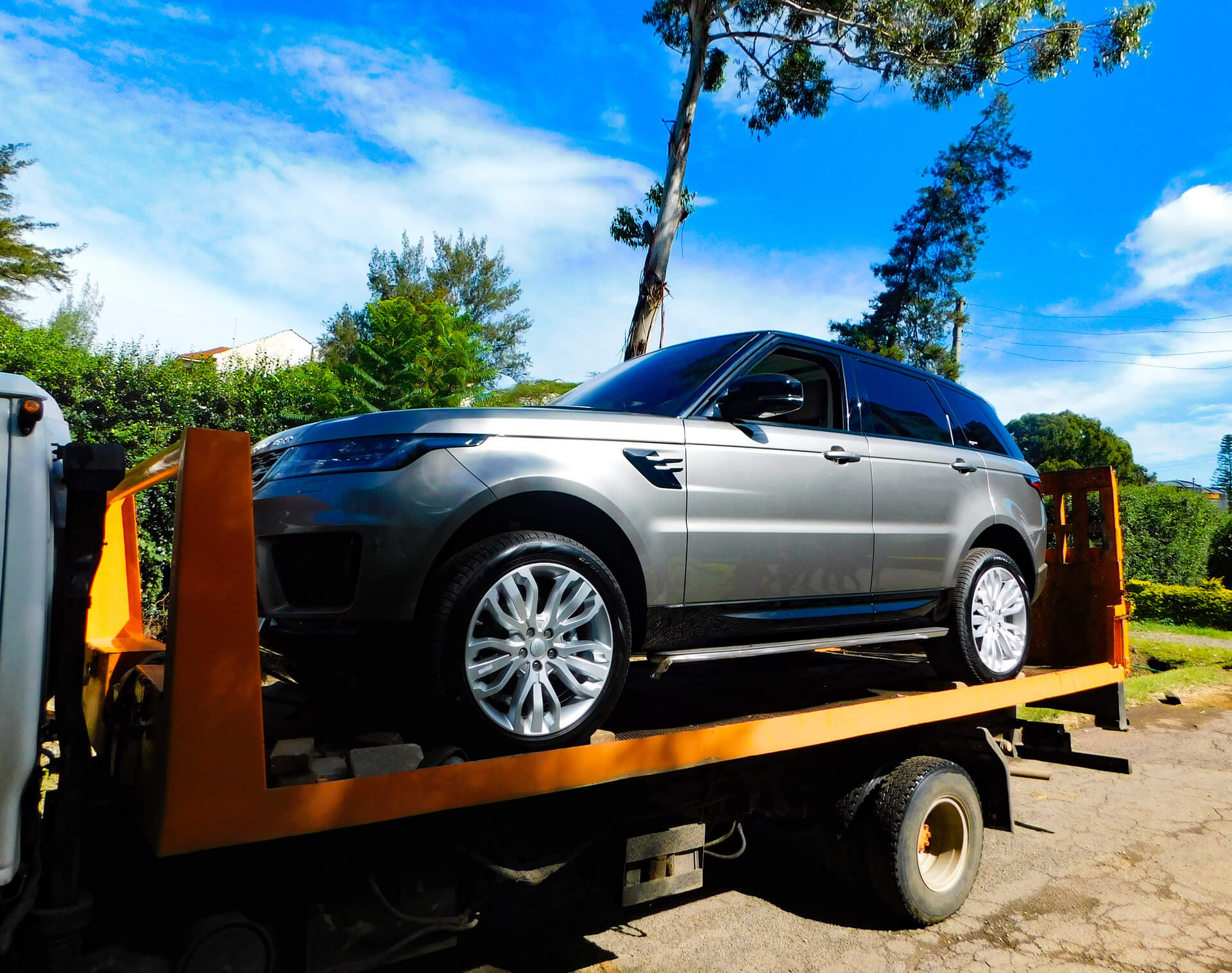
If you’re importing a non-diplomatic vehicle into Kenya, you should be aware that your car will only leave the port after it has been fully registered by the National Transport Safety Authority (NTSA).
Because this process can take time, it’s good to keep in mind that your vehicle will accrue port storage charges as well as customs warehouse rent pending full NTSA registration.
On another note, if your vehicle has successfully been exempted from duty and is duly registered in your name, you can’t transfer it to another person without first paying its taxes.
Vehicles imported duty-free are also not transferable to others for one year.
7. Left-Hand Drive Vehicles can be Swapped for a Righ-Hand Drive Car Model
Kenya allows returning residents from countries with left-hand drive (LHD) vehicles such as the USA, Europe, and West Africa to buy and import duty-free similar but right-hand drive (RHD) vehicles from countries that have them.
This provision was given since Kenya doesn’t allow the importation of LHD vehicles for personal use. Any LHD vehicles imported into Kenya can only be for special purposes (such as ambulances or large construction vehicles imported to complete projects and which are to eventually be donated to the Kenyan government).
For returning residents coming from countries with LHD vehicles to be able to buy and import RHD vehicles duty-free into Kenya, they must:
- Prove ownership of an LHD vehicle in the country they resided in, as well as proof that they used this vehicle for at least one year before returning to Kenya
- Show proof of disposal (such as transfer of ownership) of the LHD vehicle they owned before their relocation to Kenya
- Ensure their replacement vehicle complies with all KEBS car import requirements listed above
- Show that the CRSP (current retail selling price) of their newly bought RHD vehicle isn’t higher than that of the LHD they previously owned
- Show that the imported RHD vehicle is of the same category (or lower) as their previously owned LHD vehicle in terms of engine capacity (cc) rating
If a returning resident buys a replacement vehicle that’s superior to the LHD vehicle they owned before relocating to Kenya, some taxes will have to be calculated and levied for the increased cc rating.
Additionally, this vehicle replacement offer doesn’t apply to buses or minibusses with more than 13 passenger seats or vehicles with a load-carrying capacity of more than two tonnes.
8. Returning Residents Must Receive a Clean Bill of Health From KRA
It’s crucial for returning Kenyan citizens to first check their status with the Kenya Revenue Authority (KRA). KRA won’t grant duty-free exemptions to returning residents who have unpaid tax arrears or penalties as it requires that these be cleared first.
Because Kenya’s domestic tax system has been integrated with the customs system, unresolved issues with KRA may even hinder the clearing of your household goods, too.
9. Required Documents For Vehicle Importation into Kenya
To be able to import your used car duty-free into Kenya, you’ll need documents such as:
- Bill of Lading
- KRA PIN Certificate (copy)
- Original commercial invoice
- Certificate of Roadworthiness
- Certificate of ownership otherwise known as Certificate of deregistration
- Interpol / Police report
- Original passport (if the present one was issued within the last two years, the older passport may be required)
10. Engage a Reputable Moving Company in Kenya for Your Vehicle Import
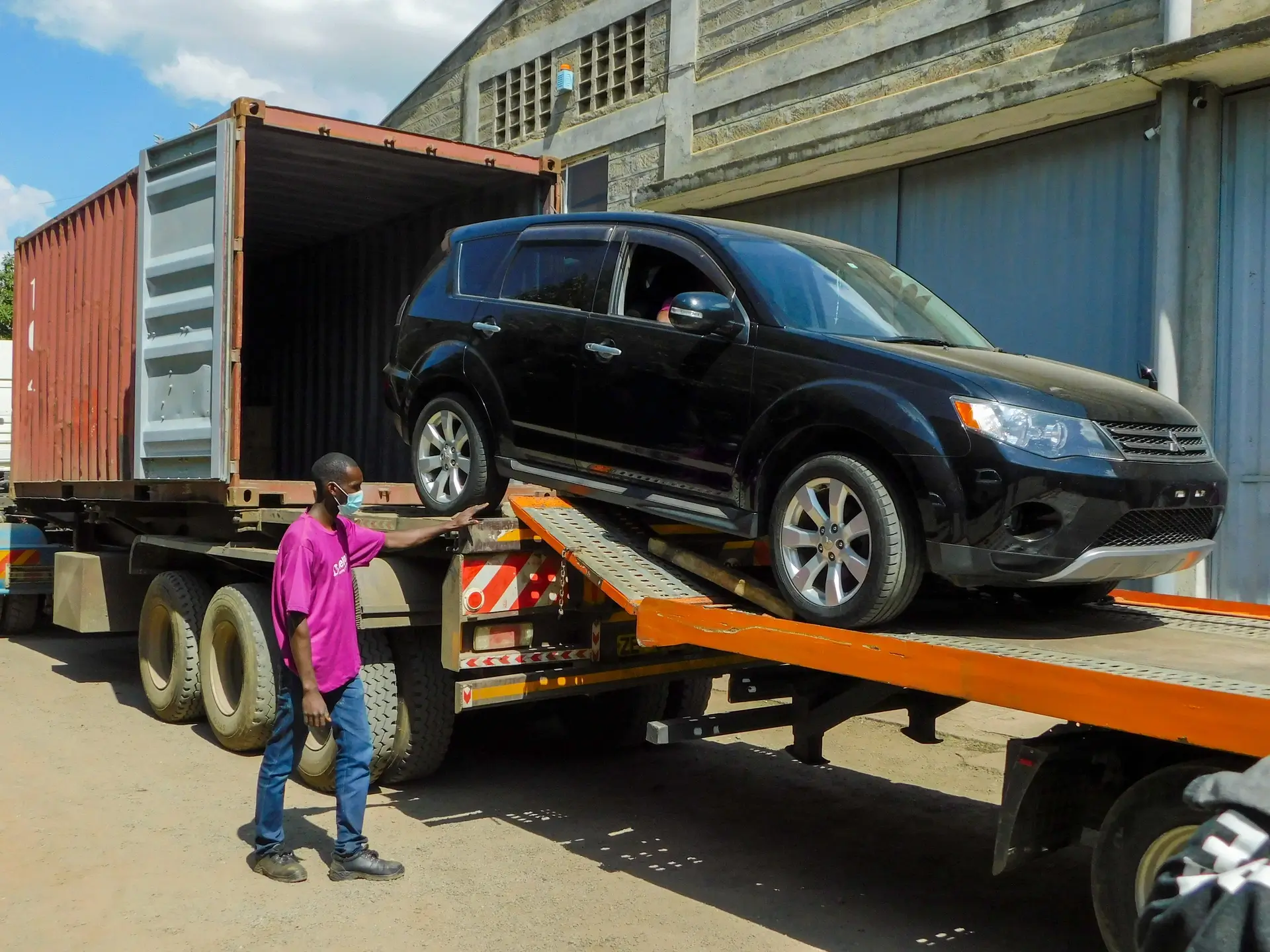
Engaging professionals to help you with the process can greatly facilitate your peace of mind as you’ll be properly advised about the documents you might require and the possible pitfalls to avoid.
By engaging a full-service moving company, you can enjoy other benefits such as the ability to ship your car in the same shipping container as your household goods.
Two Bills of Lading—one for the vehicle and one for the household goods—are required if one decides to use the same container.
Using professionals who are well-informed about the motor vehicle importation and clearance processes will help you minimize costs while alerting you to any requirements you may have overlooked.
These requirements can include the need to have a clearing and forwarding agent of good standing to help process your vehicle’s documentation and its clearance.
It’s very important, therefore, to get in touch with a reputable moving company in Kenya before you dispatch your car or even your household goods.
Step-by-step Guide to Importing a Used Car into Kenya
1. Verify Eligibility and Adherance to Kenyan Regulations
Ensure the car is not older than 8 years and is right-hand drive. It should also meet KEBS’ quality specifications.
2. Pre-Purchase Inspection
Get a pre-purchase inspection done to ensure the vehicle’s condition and compliance with KEBS roadworthiness standards. The inspection must be conducted by a KEBS-appointed inspection agent in the country of origin.
You also need to have the vehicle inspected and cleared by Interpol at the country of origin.
3. Deregister the Vehicle
Conduct the deregistration process via relevant authorities at the country of origin. You will then be issued with a vehicle deregistration certificate upon completion of this process.
4. Shipping Arrangements
Choose between Containerized Shipping and Roll-on/Roll-off based on your budget, vehicle type and size of consignment.
Pro tip: your moving company can consolidate your personal goods and vehicle into one container, thus reducing the overall importation costs.
5. Insurance and Tracking
Marine insurance is mandatory for all cargo shipments coming to Kenya.
You can use tracking services provided by your shipping company to monitor your vehicle’s journey.
6. Customs Clearance in Kenya
Prepare all necessary documents in advance, including the original Bill of Lading, vehicle logbook, and inspection certificates. Hire a reliable clearing agent to navigate the customs process.
The cost and process of customs clearance in Kenya is detailed here.
7. Paying Import Duties and Taxes
Your vehicle is eligible for duty-free import into Kenya if it meets the criteria defined above.
8. Vehicle Registration in Kenya
Ensure you have a valid KRA PIN for the registration process. The vehicle will not be allowed to leave the port until the vehicle registration process with KRA is complete.
9. Practical Tips and Advice
Regulatory Compliance: Engage an import/export expert who is conversant and up-to-date with Kenyan import regulations to avoid any legal issues or unexpected costs.
Cost Management: Factor in all costs, including purchase price, shipping, insurance, duties, and taxes, to avoid budget overruns.
Documentation: Keep all transaction and shipping documents organized and accessible for reference and legal purposes.
Frequently Asked Questions (FAQ)
You’ll first need to deregister the car in the country of origin. You’ll also need to gather the necessary documentation to support your vehicle’s shipping, including an export certificate, road worthiness inspection certificate, and bill of lading. Once shipped into Kenya, your clearing agent will assist with the process of clearing Kenyan customs. Once NTSA registers the vehicle, you are free to leave the port with it.
Returning residents may be eligible for duty-free importation of a vehicle under certain conditions. They must have lived outside Kenya for at least two years and not visited Kenya for more than 90 days during this period. The vehicle must have been in the owner’s possession for at least 12 months before returning to Kenya.
All used vehicles imported into Kenya must undergo a pre-shipment inspection for roadworthiness, safety, and other standards. This inspection is conducted by Kenya Bureau of Standards (KEBS) appointed agencies in the country of export- This is done by QISJ only if they are not present in the country of origin, the vehicle will be subjected to local inspection by KEBS at a fee of 0.6% of the value of the vehicle or USD.265/- whichever is higher. The inspection verifies the vehicle’s condition, mileage, and year of manufacture.
Import duties and taxes are calculated based on the Current Retail Selling Price (CRSP) of the car. The Kenya Revenue Authority (KRA) uses this value to determine the payable Import Duty (25%), Excise Duty (20% for cars less than 3 years old and 30% for older), VAT (16%), and other levies (RDL at 2% and IDF at 3.5%). You can use KRA’s online calculator or consult with a customs agent for precise calculations.




